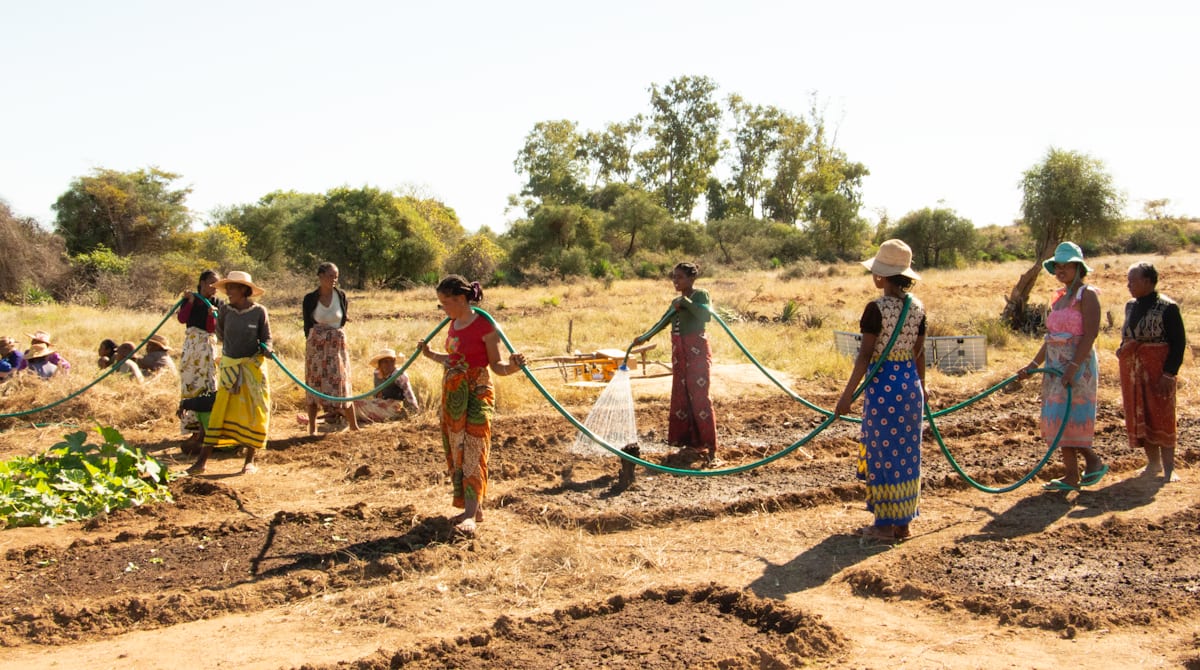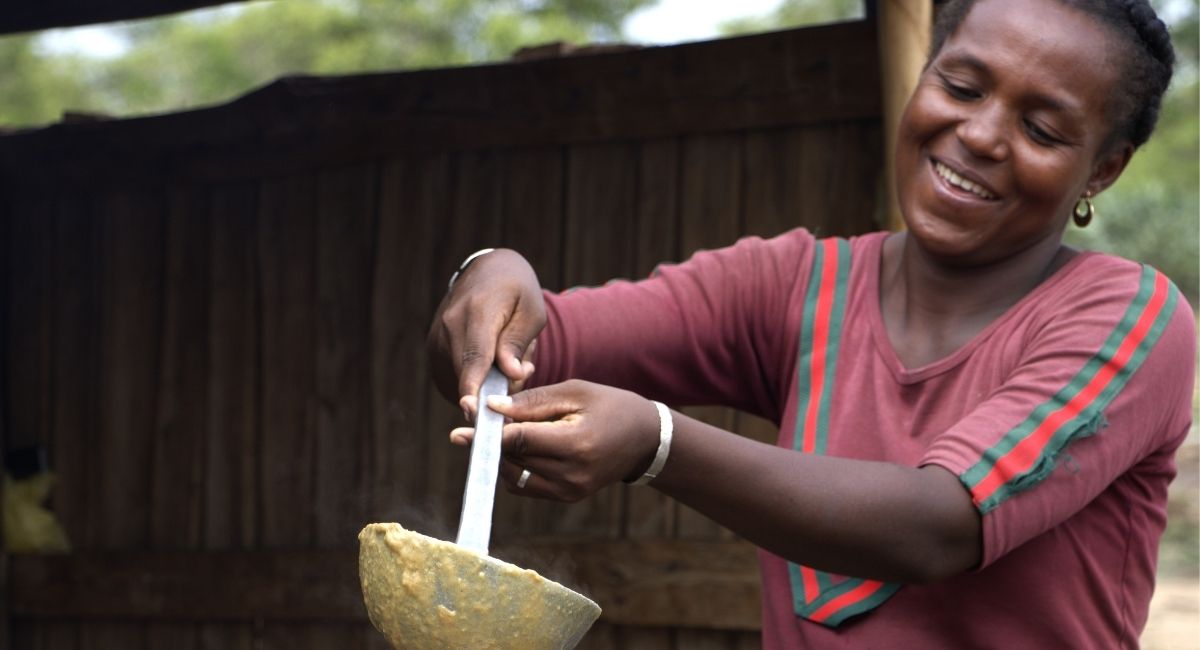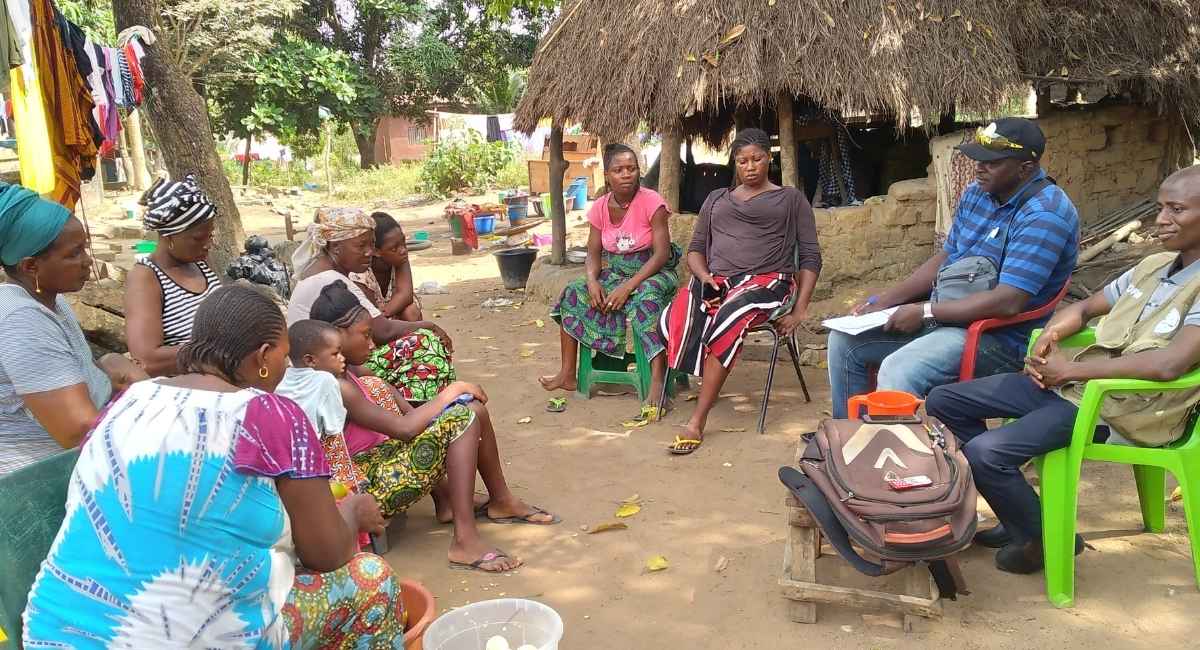In the South of Madagascar, the food and nutrition situation is particularly critical, due to recurrent droughts and the region’s geographic isolation. Since March 2020, the Afafi Sud project is contributing to improve rural households’ food and nutrition security in the Androy and Anosy regions through innovative, sustainable interventions.
This European Union funded project is being conducted jointly by GRET, the Malagasy NGO CTAS (Centre technique agro-écologique du Sud), AVSF (Agronomes et vétérinaires sans frontières), and CIRAD, with the contribution of Fofifa/Cenraderu (Centre National de Recherche Appliquée au Développement Rural).
Innovative, multi-sectoral actions
This project is taking innovative approaches for agroecology, improvement of income-generating activities and prevention of malnutrition, while drawing on communities’ skills.
To respond to climate challenges, CTAS promotes agroecological techniques by implementing “agroecological blocks” in order to create an “oasis effect”. These plots have a minimum surface area of ten hectares. They are sown with perennial plants featuring many advantages: they contribute to soil fertility restoration, increase of rainwater infiltration, protection of crops from violent winds, improvement of livestock feed and diversification of food for households. To produce certified seeds that are suited to the climate of this region, CTAS works in collaboration with local associations. This makes it possible to improve yields and strengthen households’ food security.
Together with Fofifa, CIRAD contributed to increasing the genetic diversity of sorghum, millet, cowpeas, groundnut and pigeon peas in the agroecological blocks by taking a participative approach. Producers are directly involved in the selection and evaluation of new varieties that are suited to climatic conditions in the Androy region.
The project is also encouraging the diversification of family incomes. To do this, AVSF worked on genetic improvement of goats, and chicken and goat farming techniques, increasing the resilience and productivity of flocks and herds. GRET supported market-gardening activities conducted by associations made up mainly of women. The associations were equipped with solar-powered micro-irrigation kits to facilitate watering.
To prevent malnutrition in children aged 6 to 24 months, together with the Regional Nutrition Office and basic health centres, 22 mother and child centres were set up in isolated zones in the Androy region. Community officers working in these centres raise mothers’ awareness on good eating practices, healthcare and hygiene, they also give cooking demonstrations using local products.
For long term results
In total, 151,500 people benefitted from the project’s actions. More than 500 tons of improved certified seeds were produced. Producers’ yields and income increased. The agroecological blocks now cover 3,877 hectares of land.
For goat farming, there was a significant decrease in death of kids, with improved weights. More than 472 genetically improved goats were produced by livestock farmers’ groups.
The nutritional status of vulnerable populations, in particular children under the age of five, was improved through awareness-raising, and the distribution of a locally produced fortified infant flour called Koba Aina during extended periods of drought in 2021. The mother and child centres played a crucial role in improving food, healthcare and hygiene practices. Children are now less likely to contract chronic diseases, and their weight is adequate.
The Afafi Sud project demonstrates that collectively implemented, well designed interventions can transform rural populations’ living conditions in regions affected by significant climate and economic challenges.




